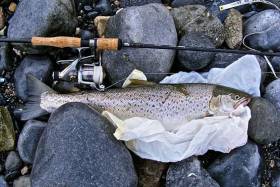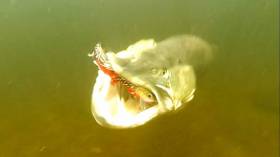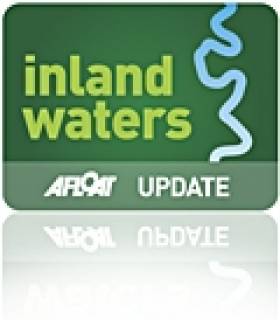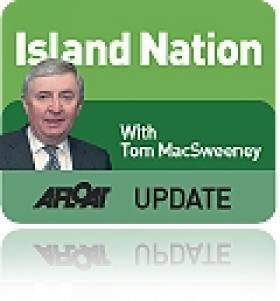Displaying items by tag: policy
A commitment to developing the diversity of the Port of Cork Company(PoCC)'s workforce is central to the PoCC's Diversity and Inclusion (D&I) Policy Statement which was launched this week.
The policy statement, devised by the Port, outlines its commitment to ensuring that its workforce better reflects the community it serves as well as the steps the company will undertake in order to guide and measure these efforts.
In the statement, PoCC acknowledges the scale of the challenge facing the maritime industry, as it has made less progress in this area than other sectors in recent years. However, it states that it will show leadership and commitment, through multiple initiatives, to improve its welcome and working environment through a considered D&I strategy.
Michael Walsh, Chairperson of the Port of Cork Company stated, “The Port of Cork has a special place in the history of Cork and Ireland. We have always been a welcoming place and are rightly proud of our connections across the globe. However, as with much of the maritime sector, we are currently less diverse than the community we serve. We are determined to show robust leadership to improve this and will constantly challenge ourselves to do better. The launch of this policy today, as part of the annual EU Diversity Month, marks another step in our commitment to multiple initiatives to improve our diversity and welcome.”
Gillian Keating, Non-Executive Director and Chairperson if the ESG Committee at the Port of Cork Company added, “I look forward to engaging with employees and other stakeholders of the Port of Cork Company to build a better, more diverse workplace where everyone can thrive. It will take time to realise our goals but we are committed to looking hard at ourselves and finding ways to do better always.”
The performance and implementation of the new policy will be reviewed on an annual basis.
To find out more about the Port of Cork Company and to review the Diversity and Inclusion Policy Statement visit here.
Public Consultation On Sea Trout Policy Development
#Angling - Inland Fisheries Ireland (IFI) is now inviting submissions from the public on the development of a national sea trout policy.
Sea trout in Ireland, in the context of legislation and management, has traditionally been closely identified with salmon and this consultation process will consider the requirement of establishing a separate identity for sea trout.
The policy will make recommendations which will inform a range of issues including sustainable management of stock and any possible legislative changes that may emerge in the future.
Other areas to be addressed will include protection and conservation (including biodiversity, habitat protection and interactions with aquaculture), stock assessment, and education and promotion.
Sea trout, the migratory form of brown trout, leave freshwater as a juvenile fish typically after two years. They enter marine waters where they feed heavily before returning to freshwater, usually to breed with some components of the population spawning several times over their lifetime.
As a result, the sea trout is a valuable angling fish which occurs in most coastal rivers and inshore waters.
Sea trout has significant economic and cultural importance in Ireland with potential for further development. This is coupled with major concerns about sea trout stock declines in some systems nationally, most particularly along the western seaboard, and requires that future management of sea trout is underpinned by a comprehensive policy.
IFI says it recognises the diverse opinions of stakeholders regarding the future management of sea trout and their fisheries and encourages stakeholder engagement through this public consultation process.
Interested parties are invited to make submissions which will be reviewed and considered by the Sea Trout Policy Group, which comprises of a range of representatives with a broad experience of sea trout within IFI.
“The sea trout is a complex migratory fish frequenting freshwater, estuaries and marine waters,” says IFI chief executive Ciaran Byrne. “The biodiversity, economic and cultural value of this type of fish requires a policy direction to manage this precious resource sustainably and to conserve it into the future.
“This public consultation, and ultimately the policy recommendations which will emerge, will capture stakeholder views and incorporate the broad scope of management issues that will underpin future policy.”
The public consultation period will run for five weeks until Wednesday 12 July. All submissions must be made in writing and will be published on the IFI website. Submissions should be marked ‘Public Consultation – Sea Trout Policy’ and can be submitted to [email protected] or by post to:
Sea Trout Policy
Inland Fisheries Ireland
3044 Lake Drive
Citywest Business Campus
Dublin 24
D24 Y265
Information on the consultation is available from the IFI website or from any IFI office.
Review Of National Pike & Trout Policies
#Angling - Inland Fisheries Ireland (IFI) has today (Monday 4 July) published the indicative timetable for the review of the National Pike and Trout Policies.
Following the appointment of a Policy Review Group later this month, the review process will commence with a scoping consultation which will be open to all interested parties.
IFI says it has long recognised that public policy-making can be enhanced through the active involvement and contribution of all stakeholders and has set out how it will develop policies and consult with stakeholders in its IFI Procedure on Policy Development and IFI Stakeholder Consultation Policy.
It is expected that the updated National Pike and Trout Policy documents will be available a year from now in July 2017.
A policy group will be appointed shortly and will comprise of five IFI staff from the research, operations and business Development divisions.
“IFI is committed to consulting with stakeholders and the general public on matters of inland fisheries policy," said chief executive Dr Ciaran Byrne. "I expect the forthcoming scoping consultation process to gather useful information that will provide an evidence base for the update of the pike and trout policies in tandem.
“An agreed view from angler stakeholder groups would be most welcome and I urge the representative groups to work for such an outcome. I encourage all domestic and tourist anglers, tourism providers and the general public to provide their views on the important issues regarding the management of our important pike and trout species.”
The inland fisheries body acknowledges the upcoming protest being staged by pike interests and can confirm that no decision has been taken regarding the cessation or otherwise of pike management operations in designated trout waters for 2017.
IFI says it has accelerated the review of the policies and is working to ensure the completion of this exercise in as consultative way as possible that ensures all interested parties have input to policy formulation .
As advised previously, work continues within IFI regarding the examination of:
- The current stock management programme, including resource usage, fish transfer and health and safety.
- Marketing and socio-economic information to include actual and potential economic value.
- Scientific information to provide advice and to consider the scientific merits of the processes being currently undertaken.
The timeline for the review process is available to read or download HERE.
Waterways Ireland Public Consultation on Safeguarding Vulnerable Groups
#INLAND WATERWAYS - Waterways Ireland is currently undertaking two new public consultations on improving safety standards for children, the elderly and people with disabilities on our inland waterways.
Details for the consultation exercise on Safeguarding Vulnerable Groups Policy & Procedures and the Draft Disability Action Plan 2011-2013 are available from the Waterways Ireland website.
Comments may be submitted via e-mail to [email protected] or by post to Waterways Ireland, Strategy & Policy Section, 2 Sligo Road, Enniskillen, Co Fermanagh BT74 7JY.
The closing date for comments is Tuesday 21 February 2012.
Programme for Government will Reinstate Marine Department
It maybe the second last item on the programme for government issued by Enda Kenny and Eamon Gilmore yesterday but the indications are good that the marine sector will see a reinstated Department of the Marine. the Fine Gael and Labour coalition say 'marine responsibilities will be merged under one Department, for better co-ordination in policy delivery'. Here is the relevant excerpt:
Coastal communities, fisheries & marine environment
We will negotiate the best possible deal for fishermen in the review of the Common Fisheries Policy.
We will support the development of sustainable aquaculture and fish farms by streamlining the licensing process and reducing associated bureaucracy.
Marine responsibilities will be merged under one Department, for better co-ordination in policy delivery. We will develop an integrated marine and coastal planning process in order to maximise the potential of Ireland's coastline in fishing, aquaculture, ocean energy and tourism.
A Sea Fisheries Sustainability Impact Assessment, based on consultation with all major stakeholders, will be brought before the Dáil annually before EU fisheries negotiations commence.
We will replace criminal sanctions system for minor fisheries offences with administrative sanction system to bring Ireland into line with other European jurisdictions. Safety at sea and decent working conditions must underpin the development of the fisheries sector. We will explore the provision of an emergency towing vessel for the Coastguard.
An Irish Maritime Foundation
I wonder whether there might be interest in forming an Irish Maritime Foundation?
I raise the question having discussed the possibility with those who run the UK Maritime Foundation and whose views about the sea about the sea impressed me when I met them in London. The Foundation traces its history back to 1981 when shipowners, senior retired naval officers and people involved in the financial industry reacted to changes in British Government policy that were regarded as failing to protect the importance of the UK maritime industry. It is a registered charity with the purpose of promoting and raising interest in the maritime sector amongst the public, the media and Parliament. To do so it is involved in assisting development of maritime education, training and research.
The British are a magnanimous people in my view. It was an honour to accept the Desmond Wettern Award from the Foundation. Desmond Wettern was a distinguished UK maritime journalist for over 30 years and the awards were established in his name. This year the Society for Nautical Research joined the awards project.
In responding I used one of my favourite descriptions - "the Family of the Sea," which I have used on radio. It drew a lot of interest from those present. I believe there is a "family of the sea" which spans oceans and seas, linking those who appreciate the sea as essential to human survival.
"Everyone who has an interest in the sea would recognise that there are and will continue to be, increasing pressures on its use and on the exploitation of its finite resources, but also a number of opportunities," according to Rear Admiral Christopher Perry, Chairman of the UK Marine Management Organisation. Those views and others I discussed with some of those amongst the 200 attending the function, who came from various parts of the world. Professor Richard Harding of the Society for Nautical Research which is marking its centenary, expressed this opinion: "There is a disturbing sense of sea-blindness in the British Government, amongst the general public at large and in the media."
There is certainly sea-blindness in our Government and in much of the media, though I am hopeful that there is growing awareness of the importance of the marine sector amongst the general public. If Ireland had an organisation like the Maritime Foundation, I would be very pleased.
• This article is reprinted by permission of the EVENING ECHO newspaper, Cork, where Tom MacSweeney writes maritime columns twice weekly. Evening Echo website: www.eecho.ie


































































